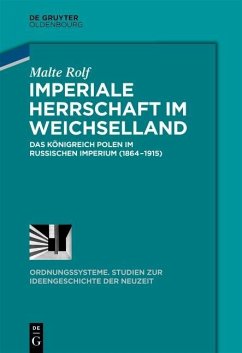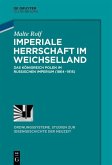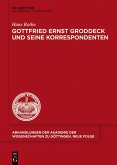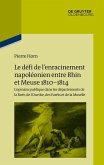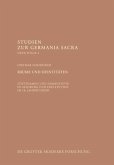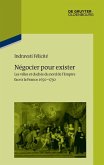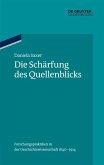Das Königreich Polen war die bedeutendste Provinz im Russischen Imperium. Nach der Niederschlagung des polnischen Aufstands von 1863-64 etablierte Petersburg ein neues System der Machtausübung.
Malte Rolf beschreibt die Strukturen und Akteure imperialer Herrschaft in diesem nun Weichselland genannten Gebiet. Die Studie schildert die alltägliche Praxis der zarischen Bürokratie und deren oft konfliktreiche Interaktion mit der einheimischen Bevölkerung. Sie zeichnet die Handlungslogiken imperialer Eliten nach und fragt nach Wechselwirkungen zwischen Reichszentrum und Peripherie.
Dieser Download kann aus rechtlichen Gründen nur mit Rechnungsadresse in A, B, BG, CY, CZ, D, DK, EW, E, FIN, F, GR, HR, H, IRL, I, LT, L, LR, M, NL, PL, P, R, S, SLO, SK ausgeliefert werden.
This is an admirable book. It brings together social and cultural issues, urban history (modernization of Warsaw), politics, imperial studies and biography. Rolf's thorough research in both Polish and Russian archives, combined with his wide reading in secondary literatures (Polish, Russian, and international), inform every page. For anyone interested in Polish or Russian history or simply 'what empires are about', this book is highly recommended."
Theodore R. Weeks in: The Russian Review 74,4/2015
"Even though a number of significant works analyzing Russian policy in the Kingdom of Poland have appeared in recent decades, we still lack studies that take a complex approach to Russian policy in this region. Malte Rolf 's monograph is important because it fills this gap. [...] The reader will undoubtedly find numerous interesting conclusions here pertaining to many aspects of Russian rule in the Kingdom of Poland. [...] In sum, Rolf's book will be of great value not just to scholars interested in Russia's rule over the Kingdom of Poland, the interrelationship between government and society in imperial politics, and the question of how policies implemented in Russian Poland affected other imperial territories but also to readers interested in a much wider context. This is a book that anyone seeking to understand modern Russia should read, including those who focus on the so-called Russian interior. As Rolf makes vividly clear, events in the borderlands, specifically the Kingdom of Poland, affected not only the rulers of St. Petersburg but the development of the empire more broadly as well." Darius Staliunas, in: Kritika: Explorations in Russian and Eurasian History 17, 4 (Fall 2016): 909-17
"Die Arbeit von Malte Rolf als Historiker [...] eröffnet eine neue Etappe in der Erforschung der polnisch-russischen Beziehungen im 19. und 20. Jahrhundert." Joanna Schiller-Walicka, on: Pol-Int (Polish studies), 28.02.2017
"Malte Rolfs Blick auf die russländischen Oberherren in Polen ist erfrischend unvoreingenommen. Es gelingt ihm, einige Klischees zu korrigieren, Dämonisierungen zu vermeiden, ohne dabei die Fremdherrschaft, die seitens der Polen im Zuge der Ausbildung nationalistischer Positionen immer deutlicher wahrgenommen wurde, schönzureden. Die Rezeption seiner Befunde wäre daher sehr wünschenswert." Frank Golczewski, in: H-Soz-Kult, 26.11.2015,
"Rolf's greatest strength is his comprehensive coverage and source analysis from 1863 to 1915 of the biographies and career trajectories of administrative elites. The men he profiles built the character of Empire on the spaces it governed. Rolf soberly narrates the Kingdom of Poland in the Russian partition, going back even as far as the partition of 1772 (in the first chapter). He does not neglect hidden moments of upheaval and ethnic violence. He adds to important work in historiography and imperiology by looking at governors who, after all, were individuals with anxieties, ambivalences, and contradictions about uncertain futures. He studies values and structures built by human beings in this situational manner, zeroing in on career-builders in their networks of development, trade, censorship, and corruption. This book is an informative history of the lives and careers of the late tsarist Empire's administrators in Russian Poland, and it should be recommended to all who are experts in Russian history, Russian-Polish relations, modern European colonial history, and the new imperial and spatial history." Steven Seegel, in: Zeitschrift für Ostmitteleuropa-Forschung, 65:2 (2016), S. 290-291; sowie in: sehepunkte, 16:9 (2016)
"Malte Rolfs Studie erweist sich im Ganzen als ein bedeutender, innovativer Beitrag zum - dynamischen und heterogenen - Verhältnis von Zentrum und Peripherie. Hierarchien, so der Befund, waren nicht dichotomisch stabil, sondern im Fluss. Imperiale Herrschaft an der Peripherie als "Kontaktzone" formte sich in Prozessen wechselseitiger Beeinflussung, moderne lokale Verwaltungspolitik wirkte auf das Zentrum zurück." Bianka Pietrow-Ennker, in: Jahrbücher für Geschichte Osteuropas, 64:4 (2016), S. 655-657
"The book is based on solid archive research and thoroughly studied German, Russian and English-language current states of research. [...] A look at history of Vistula Land in the second half of the 19th century in this context is new and inspiring from the viewpoint of Polish history." Agnieszka Zablocka-Kos, in: Quart. Kwartalnik Instytutu Historii Sztuki Uniwersytetu Wroclawskiego, 35:1 (2015), S. 75-78

